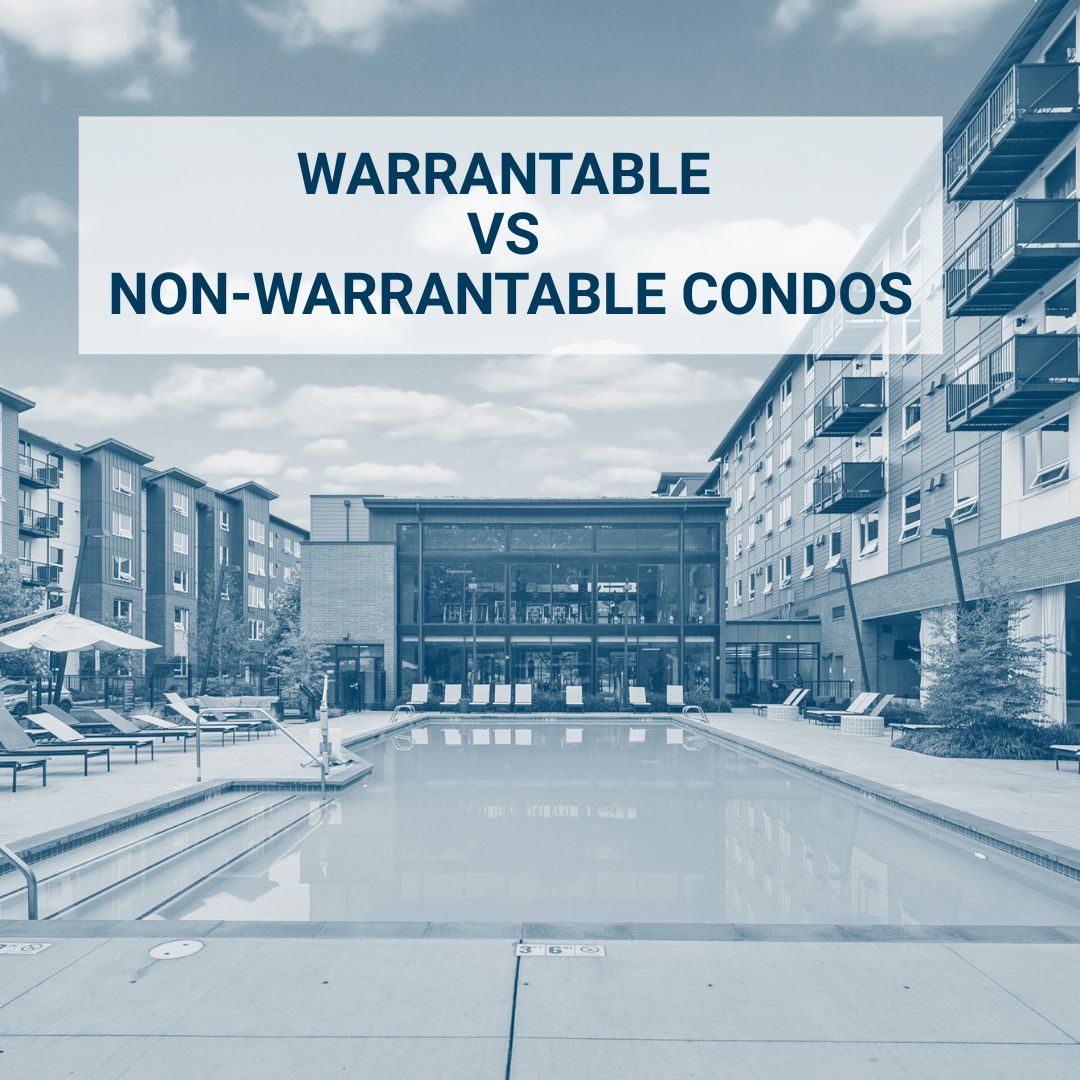
The Difference Between Warrantable and Non-Warrantable Condos
Warrantable vs. Nonwarrantable Condos: What’s the Difference?
In the mortgage world, “warrantable” and “nonwarrantable” are terms we use to describe how a condo property is viewed by Fannie Mae and Freddie Mac — the two big government-sponsored entities that set guidelines for most conventional loans. Their approval (or lack of it) impacts whether you can get a traditional mortgage and what the terms look like.
✅ Warrantable Condos
A warrantable condo meets Fannie Mae or Freddie Mac’s requirements. This typically means:
- Most units are owner-occupied (usually at least 50%).
- No single entity owns more than 10% of the units.
- The condo has adequate reserves and insurance.
- There are no significant pending litigation issues (especially against the HOA).
- The project is fully completed (not under construction or partially built).
💡 What this means for you:
- You can qualify for a conventional mortgage.
- You’ll likely get better rates, lower down payment options (as low as 3–5%), and more favorable terms.
- These loans are easier to resell or refinance down the road.
⚠️ Nonwarrantable Condos
A nonwarrantable condo doesn’t meet one or more of those requirements. Common red flags include:
- Too many units are rented out (too few owner-occupants).
- The developer or a single investor owns a large percentage of units.
- Ongoing or potential legal action involving the HOA.
- The condo has short-term rentals like Airbnb.
- The building has unresolved financial or structural issues.
💡 What this means for you:
- You won’t qualify for a conventional loan. But there are loan options available for non-warrantable condos.
- You’ll need to look at portfolio loans or non-conforming mortgages, which:
- Typically require a larger down payment (often 10–20% or more).
- Generally come with higher interest rates.
- Might have stricter qualification standards.
🏁 Final Thoughts
Before you fall in love with a condo, it’s smart to check its status. We can help you determine whether a specific condo is warrantable early in the process — that way, there are no surprises when it’s time to apply for your mortgage.
If you’re looking at a specific property we can help dig into its eligibility and talk through the best loan options for you.
